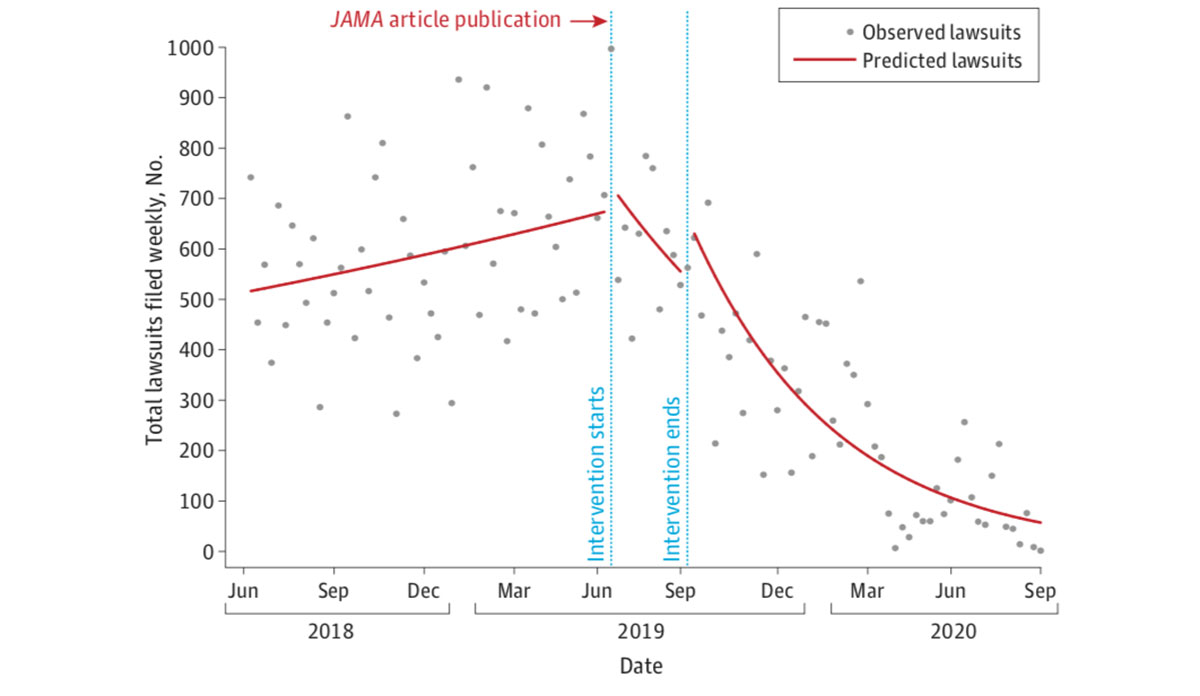How media attention changed hospital business policies impacting vulnerable populations

Large health systems in Virginia changed their hospital billing policies impacting vulnerable populations after receiving negative media attention.
Predatory hospital behavior includes suing patients for unpaid medical bills. Low-income patients are particularly affected by medical bill suing, which can result in financial hardship, bankruptcy, avoidance of medical care, and ultimately, poor health outcomes. Court-ordered wage garnishment further aggravates financial hardships for patients. Thirty percent of insured US residents have unpaid medical debt and 67% of medical bankruptcies are tied to medical care.”
Hospitals and debt lawsuits
In June 2019, JAMA published an article by William Bruhn et al. revealing that 36% of Virginia hospitals filed a particularly high amount of debt lawsuits and wage garnishment cases. Given the information in this study, Joseph Paturzo and team decided to launch an intervention to expose unfair debt lawsuits in Virginia. The change agent of choice? The media. Paturzo et al. met with prominent news publications: National Public Radio, The New York Times, The Washington Post, The Wall Street Journal, and Kaiser Health News. These media channels published a series of circulated news articles exposing Virginian hospital lawsuits against patients from June to September of 2019.
How negative publicity decreased medical debt lawsuits
The team analyzed Virginia court records before, during, and after the media intervention, identifying cases where a hospital sued a patient for payment of a medical bill. Overall, the team found that the number of medical debt lawsuits filed decreased after the media attention to aggressive bill collection, most likely due to public awareness and patient advocacy.
Visualized above, the data showed a 59% decrease in the number of lawsuits filed following the intervention. Additionally, the study observed a 55% decrease in the number of warrants in debt cases filed, a 66% decrease in the number of wage garnishments filed, and a 64% decrease in the total amount pursued by hospitals post-intervention.
Eleven hospitals (16.4%) stopped filing lawsuits after the intervention period. Large health systems in Virginia changed their billing policies after receiving negative media attention.
These findings suggest that hospitals can and will change their billing practices when faced with public accountability. However, no current policies regulate hospital billing practices. The researchers suggest that a rating system for hospital billing fairness could enable a more sustained and transparent approach when evaluating litigious hospital actions.
Rubina Veerakone is an MPH candidate at the Boston University School of Public Health. Her interests include maternal and child health inequities, health law and policy, social epidemiology, and how the humanities relate to public health. If not fascinated by history, she’s most likely getting lost in songs and movies, or discovering ways in which science meets story.
This article was originally published as En-“suing” Medical Debt from Public Health Post.
Public Health Post informs and inflects the broader conversation on health and social justice. Every day they feature new articles about the state of the health of the population. They invite policymakers, journalists, academics, and practitioners to share their work in ways that can influence health on a local, national, and global scale. PHP editors, working with graduate student Public Health Post Fellows, present health statistics, research summaries, interviews with important health thinkers, and easy-to-understand data graphics to start new conversations about health.




